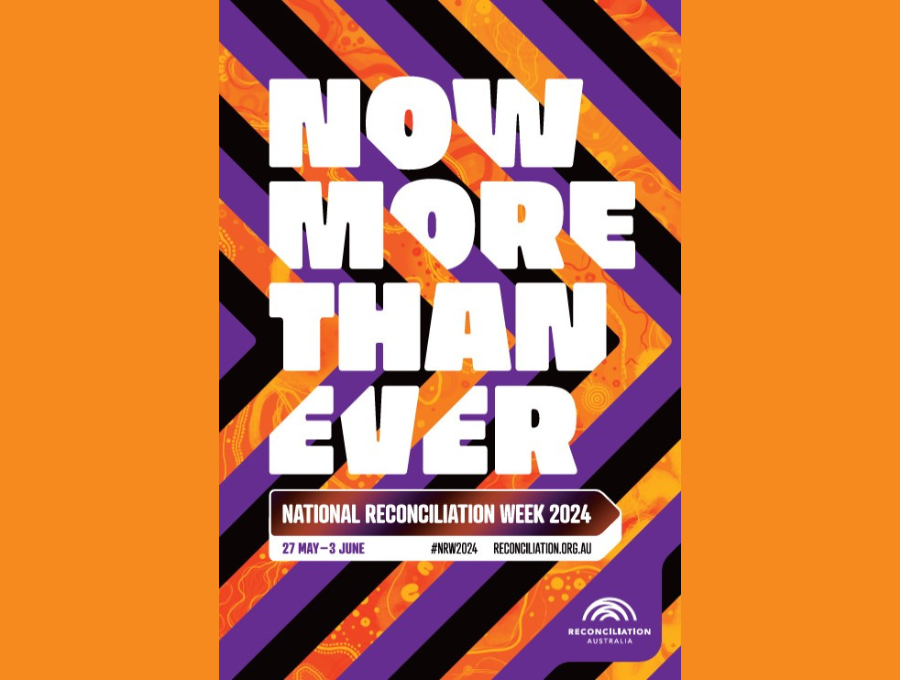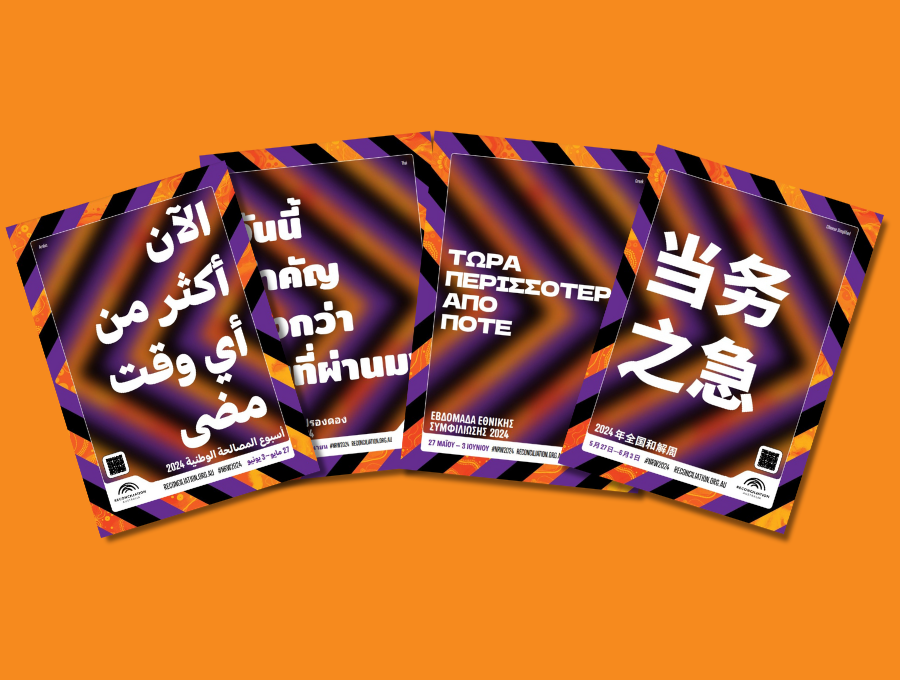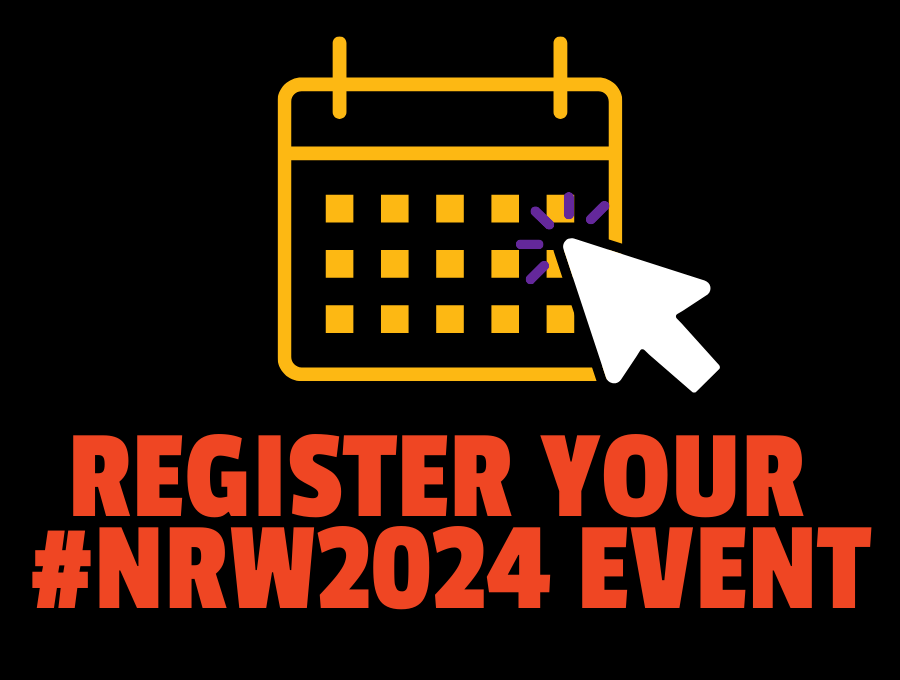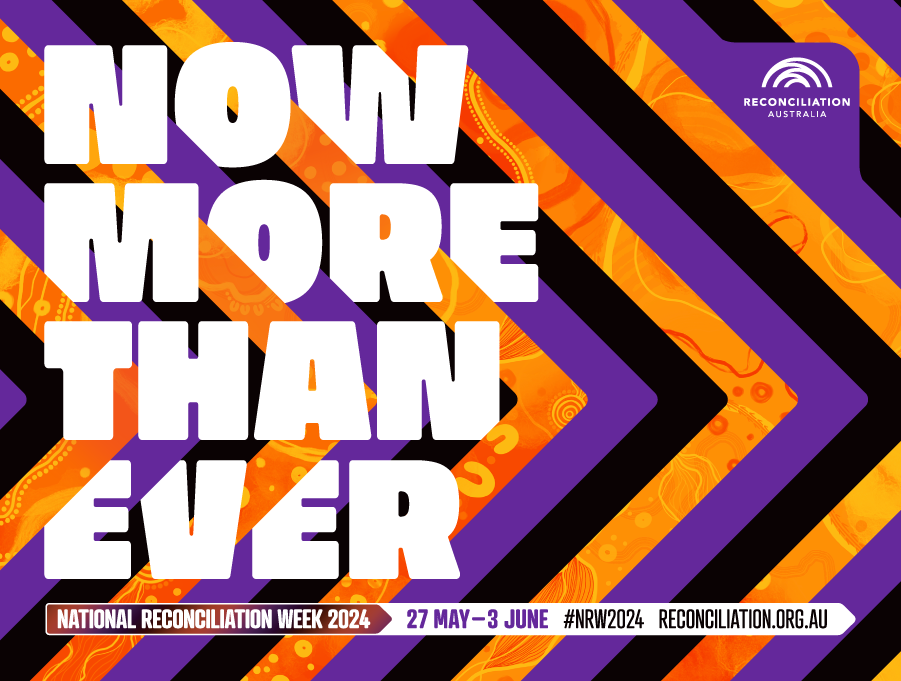National Reconciliation Week (NRW) is a time for all Australians to learn about our shared histories, cultures, and achievements, and to explore how each of us can contribute to achieving reconciliation in Australia.
27 May - 3 June
Now More Than Ever #NRW2024
Posters, banners, social tiles, colouring-in sheets, t-shirts and other files for use at home, work, and school.
Resources and translated information on National Reconciliation Week in 10 community languages.
Submit your own public NRW event so supporters can find it and attend – or register a private event if it’s invite only.
Choirs 2024
Reconciliation Australia is calling on all singers to join us in song for National Reconciliation Week.
The song we will all be singing is Blackfella/Whitefella by Warumpi band.
Find out more about Voices for Reconciliation: Louder than Ever.
About the theme
The National Reconciliation Week theme for 2024, Now More Than Ever, is a reminder to all of us that no matter what, the fight for justice and the rights of Aboriginal and Torres Strait Islander people will —and must —continue.
There have been many moments in Australia’s reconciliation journey that make us want to turn away. But when things are divisive, the worst thing we can do is disengage or disconnect.
Now more than ever, we need to tackle the unfinished business of reconciliation. We know that the 6.2 million Australians who voted YES are committed to better outcomes for First Nations people, and are with us.
Reconciliation supporters must stand up to defend and uphold the rights of First Nations peoples. To call out racism wherever we encounter it, and to actively reinforce the voices of Aboriginal and Torres Strait Islander peoples across this continent.
Now more than ever, the work continues. In treaty making, in truth-telling, in understanding our history, in education, and in tackling racism. We need connection. We need respect. We need action. And we need change.
Now more than ever, we need reconciliation.
About the artwork
The National Reconciliation Week 2024 design and artwork represent the momentum of the theme Now More Than Ever. The chevron, a universal symbol for pointing the way, signifies advancing as one as we look towards a reconciled future; and the vibrant artwork of Gubbi Gubbi artist Maggie Douglas encourages connecting with one another, understanding and continuing to move forward.
The 2024 theme design incorporating the artwork is by Carbon Creative.
What is National Reconciliation Week?
The dates for NRW remain the same each year; 27 May to 3 June. These dates commemorate two significant milestones in the reconciliation journey— the successful 1967 referendum, and the High Court Mabo decision respectively.
Reconciliation must live in the hearts, minds and actions of all Australians as we move forward, creating a nation strengthened by respectful relationships between the wider Australian community, and Aboriginal and Torres Strait Islander peoples.
We all have a role to play when it comes to reconciliation, and in playing our part we collectively build relationships and communities that value Aboriginal and Torres Strait Islander peoples, histories, cultures, and futures.
A brief history
National Reconciliation Week (NRW) started as the Week of Prayer for Reconciliation in 1993 (the International Year of the World’s Indigenous Peoples) and was supported by Australia’s major faith communities.
In 1996, the Council for Aboriginal Reconciliation launched Australia’s first National Reconciliation Week.
In 2001, Reconciliation Australia was established to continue to provide national leadership on reconciliation.
In the same year, approximately 300,000 people walked across Sydney Harbour Bridge as part of National Reconciliation Week-and subsequently across bridges in cities and towns-to show their support for reconciliation.
Today, National Reconciliation Week is celebrated in workplaces, schools and early learning services, community organisations and groups, and by individuals Australia-wide.








